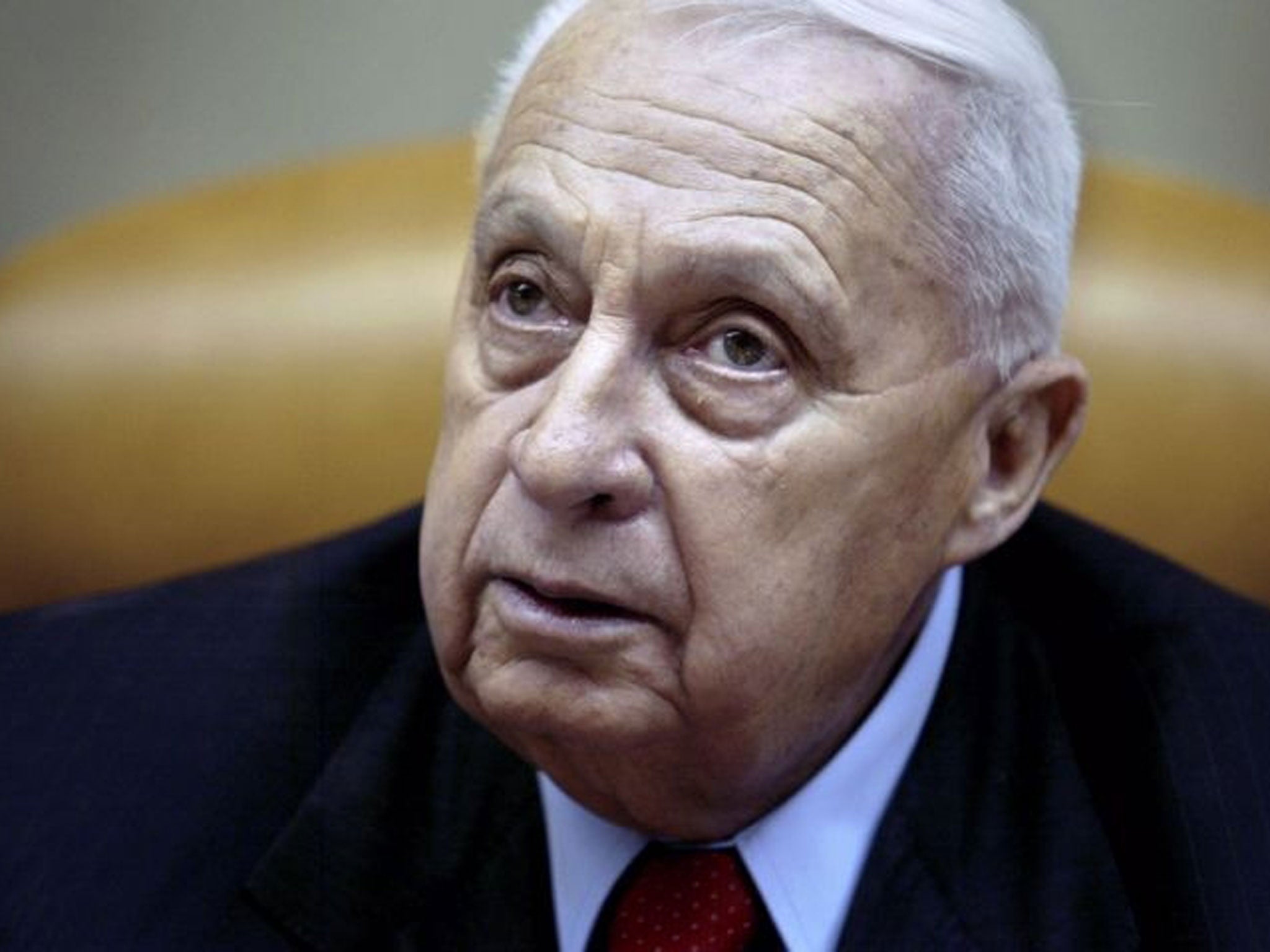Ariel Sharon dies: Former Israeli Prime Minister's life in pictures

Your support helps us to tell the story
From reproductive rights to climate change to Big Tech, The Independent is on the ground when the story is developing. Whether it's investigating the financials of Elon Musk's pro-Trump PAC or producing our latest documentary, 'The A Word', which shines a light on the American women fighting for reproductive rights, we know how important it is to parse out the facts from the messaging.
At such a critical moment in US history, we need reporters on the ground. Your donation allows us to keep sending journalists to speak to both sides of the story.
The Independent is trusted by Americans across the entire political spectrum. And unlike many other quality news outlets, we choose not to lock Americans out of our reporting and analysis with paywalls. We believe quality journalism should be available to everyone, paid for by those who can afford it.
Your support makes all the difference.Former Israeli Prime Minister Ariel Sharon has died aged 85, according to Israeli radio, quoting a relative of his family.
He spent eight years in a coma following a stroke at the height of his power in 2006. Sharon became Prime Minister in 2001.
He was long regarded as a standard bearer of the Israeli right after playing a leading role in both the Six Day War of 1967 and Yom Kippur conflict six years later. After retiring from the Israeli army as a general, he joined the right wing Likud party and was swiftly promoted into the ministerial ranks.
Sharon was also the first Likud prime minister to endorse the idea of a Palestinian state, however parsimoniously. He was the first to call the West Bank and Gaza Strip “occupied” territory. Most radically, Sharon advocated the evacuation of Gaza and part of the West Bank, including settlements he himself had fostered.
Never one to shun controversy, he was accused, especially by the Palestinians, of being a warmonger and held responsible for many deaths. He was labelled the ‘Butcher of Beirut’ by some after the deaths of as many as 3,500 Palestinian refugees in the massacre at the Sabra and Shatila camps in Beirut in 1982 when he was Israel’s defence minister.
Join our commenting forum
Join thought-provoking conversations, follow other Independent readers and see their replies
Comments